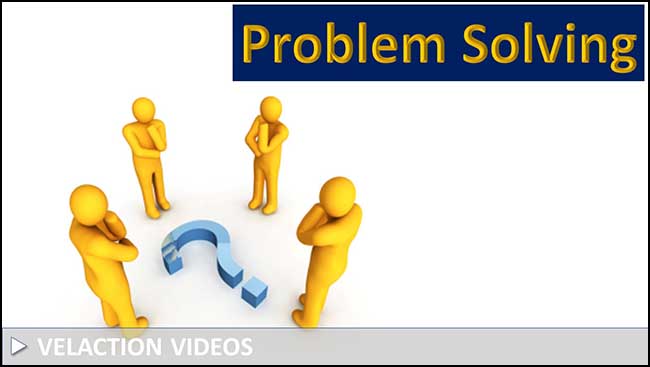Speaking in Negatives
When someone is happy, they say “I am happy.” They do not say, “I am not sad.” When people speak in negatives, they are typically meaning, at least subconsciously, whatever they are saying with the “not” removed. In the case above, if a person says, “I am not sad”, it really translates to “I am sad, but I have a reason that I don’t want to announce it.”
People use this speech mechanism frequently. Listen for it, and you will hear countless cases of it. Normally, the speech pattern is used when there is a need to prevent true feelings from coming out, such as when there is a big change at work that a person is uncomfortable with. When feelings are clear, there is no wordsmithing. I have never once seen a truly excited person respond by speaking in negatives. No lottery winner ever exclaims, “I’m not disappointed.” People don’t get off roller coasters and describe it as “not slow and boring.”
Normally, what is going on is that the person has one feeling that is contradictory to what the expected response is, and the mental conflict makes the comment come out sideways. They can’t completely suppress their feeling, and it sneaks out. Most people, if confronted about it, though, will deny that they feel the opposite way.

When I first heard about this, I thought it was, to use the technical term, psycho-babble-mumbo-jumbo. Despite this, the seed was planted, and the more I watched, the more I saw evidence to support the psychological theory. I cannot count the number of times I have heard, “It’s not that I don’t think that Lean will work here, but…”, or “I’m not against these changes, but…”
Knowing about speaking in negatives can give you a big upper hand in dealing with transitions. People think that their outward appearance is in line with what they are saying. You will know differently. You will be able to identify the resistance in the person and will be able to adjust how you interact with them. Of course, this is not a foolproof method to identify resistance, but it does act as a good indicator to dive deeper.

Words of Warning
- Don’t treat this as an absolute indicator. As psychiatrists put it, sometimes a ball is just a ball. (Note: This refers to not reading symbolism into every aspect of a dream.)
- Don’t confront people when they speak in negatives. Just use the information. Most people talking in this manner have a lot going on in their heads, and the last thing they need is someone “gotcha-ing” them.

In some cases, when there is a moderate amount of resistance, I have given a quick lesson to a team about speaking in negatives. I recommend only pointing out incidents with a person who is fairly confident in herself, and who is a typically strong performer, as it will single them out. Bringing it out in the open, though, can be an effective teaching method.
It is OK to talk about the fact that people have reservations about the prospect of success of the project and are uneasy about the change. This is one of the few times when a person actually does stand up and raise their hand (figuratively) and say that they are not toeing the partly line. Having that information can help you dramatically in dealing with their resistance to change.



7 Comments
Being · October 15, 2020 at 3:46 am
Firstly, empathy is FEELING what others FEEL. It has nothing to do with directing them anywhere. Active listening can be a wonderful skill, but it appears your advocation for the above concept is about its aiding people at being better ‘leaders’. That is limiting to both the concept and the audience.
I am in no way discounting the premise. If arguing anything it is that you’re using it to a stunted degree. The idea is spiritually based opposed to purely mental or psychological. I was Inquiring about your source with a genuine interest as opposed to any need for ‘validity’.
The heart spirit or feelings as you choose to use, are energy. Language intensifies this energy. Not or ‘n’t’ is a inverter of energy. WHENEVER used it shows an incomplete understanding of ones own feeling, or opposite stance on anything it may be used to discuss. Just as your example about criticism points out.
Whether it is believed, the use of ‘don’t’ in the words of warning, IS a call to participate in gotcha behavior. As is using this concept solely for listening to others. Which is what I was pointing out. Taking the time to make a website for ‘millions’ to see, but thoughtlessly failing to take your own advice when warning of how defensive people can be about there negation uses, is indicative that your intent when sharing this information has some inconsistencies.
Had I used ‘Influence’ over manipulation would you feel less vehemence, even though they are by all means both concerned with the shaping of others? Frankly, the world is full of “leaders” and for the most part it is shit. So you must excuse my unenthusiastic response. The truest of any who lead do so by example, with little intent to be followed or create followings.
Have you noticed any ‘nots or n’t’ in any of my responses? That is because I live this concept, rather than just use for a few weeks when I want to better equip myself to manage others or hear their unconscious feelings to pad an argument.
Educating people to be more autonomous or self diagnostic with their own words or word choices is the foundation of the idea, and promoting it primarily as a tool in a leadership kit, especially with such little empirical evidence available, is a bit irresponsible. I feel it is worth more than that.
If the world can stand for anything, it would be better followers. The kind who are given greater abilities to discern any leader’s authenticity. Those who, rather than being reliant on leadership, are able to better understand and more accurately communicate their own or another’s feelings in all situations or environments.
Thank you for the spirited debate, as you put it, but I honestly was just hunting a source trail. Best of luck with your views and visits.
Jeff Hajek · October 15, 2020 at 9:27 am
Loving the back and forth. Really makes me think.
1) This is a site on continuous improvement, and often focuses on leadership. Not sure what your objection is to me discussion a concept in that framework. And I do know what empathy is. I think leaders should understand and consider the feelings of others when directing them. They will still often have to tell them to do things they don’t want to do, but the way they do that is important.
2) You are absolutely correct that this concept is also one that is very useful for self-reflection, but that was not the purpose of this article. It does give me ideas for future articles, though.
3) This is not a universal concept. A ‘Do Not Feed the Animals’ sign is not an invitation to chuck peanuts to the elephants. Sometimes a ball is just a ball. I’ve just trained myself to use it as an indicator, and then assess if there is something more to it than that.
4) Influence would have been much, much better than manipulate. Manipulate involves tricking someone to get them to do something they don’t want to do. Influence involves trying to get them to change their thinking. Clearly one is a good way to treat people and the other is not. Related, I guess we just disagree about leadership. My goal is to make leaders better so there are not so many bad ones out there, but leadership is a critical function in any social group. Without aligning goals, it is hard to accomplish much of anything.
5) In searching, it seems like the best keywords are ‘positive vs negative phrasing’. There’s more out there than I originally saw when I was focusing the search on ‘thinking’. The NIH article was the most scholarly one I saw in the brief search, but there is a lot of opinion-type stuff out there on the concept.
Being · October 14, 2020 at 10:22 am
I understand. You advocate this as a way to manipulate (“lead”) people YOU interact with. Rather than a way for people to better understand themselves.
You said it yourself, when the nots are removed. “I’m saying you can tell people to do things.” Funny indeed.
Would you happen to have the name of that mental health professional? I’d love to talk with them.
Slan.
Jeff Hajek · October 14, 2020 at 11:10 am
I vehemently disagree that listening closely to how people say things and taking that information into account when leading people is manipulation. It is called empathy. And I think that is exactly how you are supposed to lead.
But absolutely, yes, I do look at my own responses when I immediately speak in negatives during a response, and I recommend people do the same. If someone was to ask me about this conversation, I might reply “I’m not annoyed with someone picking apart an article in an insulting manner”. The reader could then infer that I might actually be annoyed with how the person is critiquing me. Alternatively, I might say “I love a spirited debate and it makes me think more deeply about my writing when I am challenged.” It’s not definitive proof one way or the other, but if the person was actually interested in the response, they could use it as a data point moving forward.
But I’m always open to process improvement. I hereby adjust this concept to specifically use it when talking about how people say they feel about things. I discount using it when reading over policies or content you read on the internet. Does that work for you now?
I’d also say, that if you want to pick apart the concept, that I suggest you look at the words of warning less selectively. I clearly caution against ‘gotcha’ conversations.
But hey, use it or don’t use it. Your choice. But before you discount the premise behind the article, give it a week or two and actively listen for it when people are talking to you. Then I’d love to hear back from you once you give the theory a try.
My final caution to you is not to discount ideas based on authority. You seem to be saying that I’m wrong not because the concept is flawed, but because there is no expert opinion that I am willing to cite on the record. Certainly, authority is an indicator, but it is not an absolute disqualifier. I’m fine if you refute me on merits. True, there is no study other than decades of anecdotal evidence that I can cite. But I have had a few million people visit my site and 1.6 million views of my videos. I graduated from West Point (arguably the premiere leadership institution in the world), and got an MBA. I carry at least a little bit of expertise in the category of leadership.
Jeff Hajek · October 14, 2020 at 11:47 am
I did a bit of research to find a reputable, related study. The NIH did a study regarding positive vs negative phrasing for patients. There was a statically significant improvement for patients that use positive phrasing regarding the disease than those using negative phrasing. https://pubmed.ncbi.nlm.nih.gov/24630548/
Being · October 13, 2020 at 2:09 pm
There is a bit of hypocrisy to this advice to start both of your words of warning statements with Don’t.
Also what is your source for ‘hearing’ about this Concept?
Thanks
Jeff Hajek · October 13, 2020 at 2:27 pm
Funny about the words of warning. I should clarify. This is mostly about when people are talking about their feelings. I’m not saying you can’t tell people not to do things.
As for source, I heard this from a mental health professional years and years ago, and it has borne out time and time again to hold true. But you are correct in principle. There are no articles on this in any psychiatric journals. But that does not mean that the concept is wrong as a gut-feel check to dive deeper into a leadership interaction.
Take it for what it’s worth. A tool for your leadership toolkit.
Thanks for the comment.
Jeff